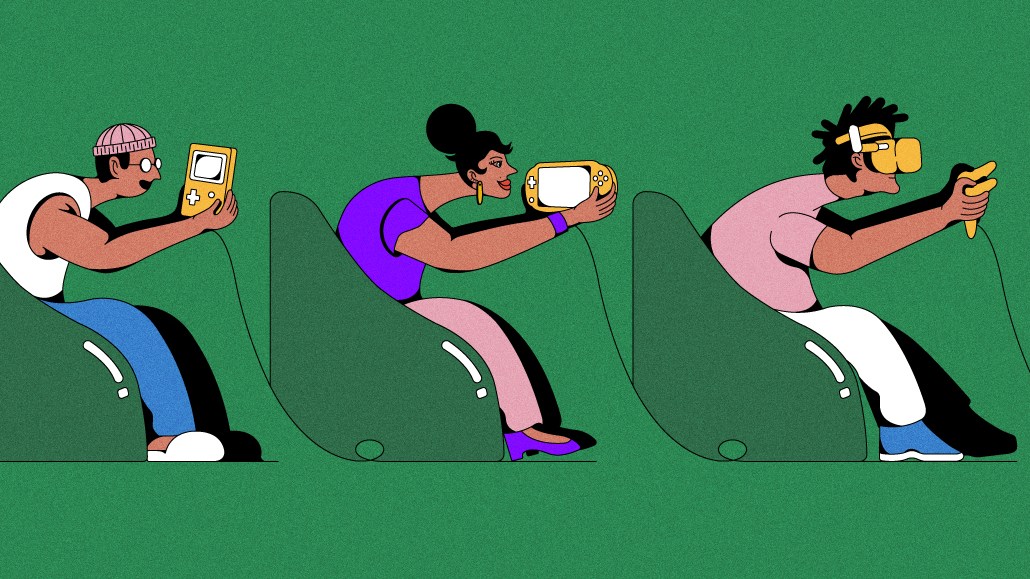Secure your place at the Digiday Media Buying Summit in Nashville, March 2-4
Sony’s ‘Ghost of Yotei’ shows how games and film/TV adaptations are increasingly going hand in hand

As the gaming industry embraces the live-service model, some publishers are baking film and TV adaptations into their business plans from the start to help extend the lifespan — and revenue-generating potential — of their top titles.
Sony Interactive Entertainment’s official messaging around the game “Ghost of Yotei,” whose first official trailer came out on September 24, made it clear that the game is intended to kick off a new media franchise for the company, replete with its own film and TV adaptations.
Sony’s approach to “Ghost of Yotei” represents a departure from the way video game publishers have traditionally adapted their most popular games into other forms of media. Although game adaptations such as the “Super Mario Bros. Movie” and “The Last of Us” have achieved great success in recent years, they were adaptations of proven properties with years of devoted fandom.
As gaming’s star rises in Hollywood, even successful game adaptations such as the “Mario” movie have largely come years after the publication of their source material. Film studios pick the most prominent franchises for development, using their popularity primarily to generate ticket revenue. Increasingly, however, video game publishers are viewing film adaptations as an opportunity to boost sales and engagement around their games from the get-go.
Sony’s announcement of “Ghost of Yotei” adaptations from the very beginning, for example, shows that the publisher is recognizing how IP adaptations can be an invaluable tool to extend the lifespan of even a relatively new game. Sony representatives did not respond to requests for comment for this article.
“A lot of gamers expect their games to be updated — it’s the games-as-a-service thing. As the consumer, you’re expecting you’ll have to pony up money for the seasonal update, or this new expansion whenever it comes,” said gaming marketer and journalist Kerry Waananen. “So, in a way, this is a sort of evolution of that. As you’re announcing this game, you’re also guaranteeing to your audience that there is going to be additional content that they can already look forward to.”
Game publishers across both the console and mobile markets are taking note of the power of IP adaptations to drive user engagement. Although the mobile publisher Zynga is still in the early stages of exploring adaptations of its owned IP, the company has leaned into video game adaptations of popular franchises such as “Star Wars” and “Game of Thrones” in order to develop so-called “forever franchises” that will generate revenue for the company for at least five years.
To Zynga, game adaptations are a natural extension of the fandom of popular film and TV franchises, giving fans an opportunity to interact with settings and characters in ways that might not be possible in other formats. The company views the bidirectional flow of IP between gaming and Hollywood as a mutually beneficial relationship.
“Collaborating with IP, and IP collaborating with you on a game, is very interesting to us, because you want to create awareness, and you want to create something fun for your players,” said Zynga evp of mobile studios Yaron Leyvand. “And I think you can achieve both with it — you just need to find the right fit.”
The rise of video game adaptations demonstrates the diffusion of entertainment across different media categories. Film, television and gaming are no longer disparate audiences with their own preferences and favorite properties. Instead, today’s media consumers expect their favorite franchises to be accessible across all formats. Any IP owner who doesn’t explore adapting their properties into other areas is leaving money on the table.
“For a lot of these IP holders, to make a billion-dollar franchise, they need to be able to flex into these other areas to be successful. From what we know, 72 percent of people that are fans of the IP in one format are likely to play or watch another installation of that franchise,” said Fandom director of sales research and insights Alexandra Saraniti.
“You want to build out this world in a way that engages your fan bases, but also extends and retains those audiences for years and years. Obviously, the lifetime value of that fan becomes incredibly high.”
More in Marketing

Future of Marketing Briefing: AI’s branding problem is why marketers keep it off the label
The reputational downside is clearer than the branding upside, which makes discretion the safer strategy.

While holdcos build ‘death stars of content,’ indie creative agencies take alternative routes
Indie agencies and the holding company sector were once bound together. The Super Bowl and WPP’s latest remodeling plans show they’re heading in different directions.

How Boll & Branch leverages AI for operational and creative tasks
Boll & Branch first and foremost uses AI to manage workflows across teams.








